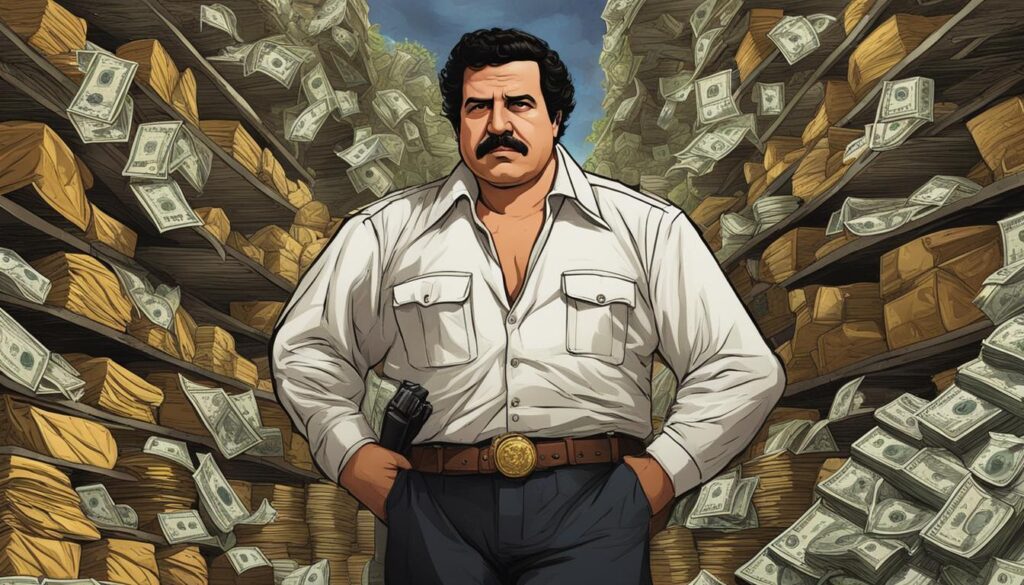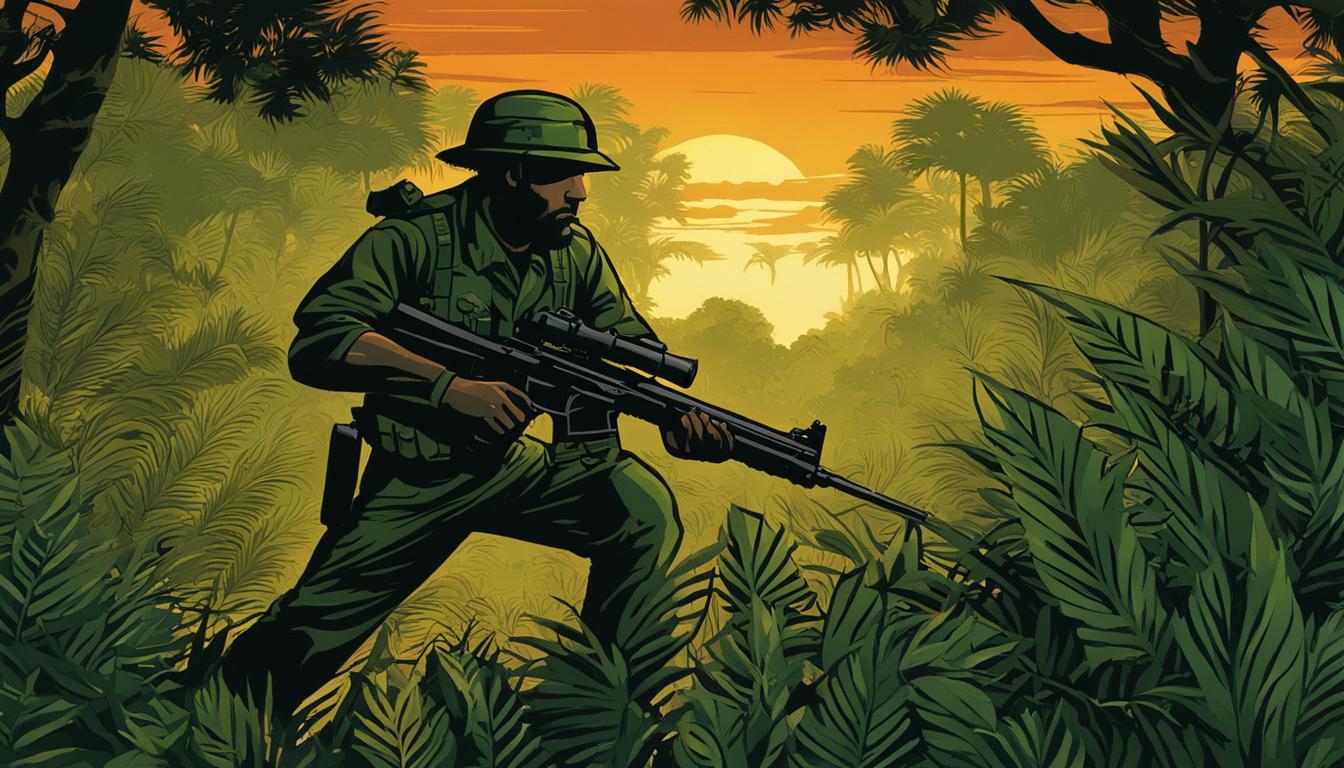One of the most infamous and elusive individuals of the 20th century was drug lord Pablo Escobar. In his book “Killing Pablo,” author Mark Bowden describes the manhunt for this notorious criminal, which spanned multiple years and involved numerous law enforcement agencies.
Bowden’s work offers a comprehensive summary of the events that led to Escobar’s ultimate downfall. This book is a must-read for anyone interested in understanding the impact of Escobar’s criminal empire and the extensive efforts made to bring him to justice. In this article, we will explore the book summary, the author Mark Bowden, and the significance of this story.
About the Author
If you are wondering who wrote the gripping book “Killing Pablo,” it is none other than Mark Bowden. With several notable works under his belt, Bowden has established himself as a prominent journalist and author.
Bowden has a degree in journalism from Loyola University Maryland. He started his career as a reporter at The Baltimore News-American, where he covered a range of topics, from crime and courts to politics and social issues. Later, he worked as a national correspondent for The Philadelphia Inquirer, covering major events such as the Gulf War and the O.J. Simpson trial.
But Bowden is perhaps best known for his books, which span a diverse range of topics and genres. In addition to “Killing Pablo,” he is the author of several other nonfiction works, including “Black Hawk Down,” “Guests of the Ayatollah,” and “Hue 1968.” He has also penned a number of essays and articles for esteemed publications such as The New Yorker, The Atlantic, and Vanity Fair.
Overall, Bowden’s extensive experience in the field of journalism and his skill as a writer make “Killing Pablo” a compelling and thoroughly researched book.
Introduction to Killing Pablo
If you’re looking for a gripping true-crime story, look no further than “Killing Pablo” by Mark Bowden. This thrilling book offers readers a deep dive into the pursuit of notorious drug lord Pablo Escobar, highlighting the incredible efforts made by law enforcement and government agencies in their mission to bring him to justice.
The book is a captivating account of the events that transpired during the pursuit of Escobar, detailing the highs and lows of the search for justice. Bowden’s writing is captivating and immersive, ensuring that readers will be on the edge of their seats throughout.
The story of “Killing Pablo” is a complex one, with many players and moving parts. Bowden does an excellent job of weaving the events together to create a cohesive narrative that is both informative and engaging.
“The hunt for Escobar became a churning, nationwide manhunt that would test the country’s rule of law more severely than any previous domestic dispute. It would also expose a variety of issues in U.S.-Colombian relations, including tensions between U.S. agencies and the Colombian police, problems of jurisdiction and extradition, and different conceptions of appropriate tactics and proper targets in the pursuit of drug lords.”
Through “Killing Pablo,” readers are given a unique insight into the inner workings of the criminal empire that Escobar built. The book showcases the extent of his power and reach, and how he was able to elude capture for so long.
Pablo Escobar: The Rise of a Criminal Empire
Our story begins with the rise of one of the most notorious drug lords in history – Pablo Escobar. Born in Rionegro, Colombia, in 1949, Escobar had humble beginnings but eventually became the leader of one of the most powerful drug cartels in the world. Escobar’s criminal empire was built on drug trafficking, with the Medellin Cartel controlling up to 80% of the cocaine supply in the United States in the 1980s.
Escobar was a mastermind strategist and used his immense wealth and power to bribe officials, intimidate the government, and operate with impunity. His criminal activities extended beyond drug trafficking and included kidnapping, extortion, and murder, amongst other heinous crimes.

The impact of Escobar’s criminal empire was felt not only in Colombia but across the world. He was responsible for countless deaths and inflicted immeasurable damage on society. The extent of his influence and reach was unparalleled, leading many to consider him a modern-day Robin Hood.
“I am a decent man who exports flowers,” – Pablo Escobar
Despite his claims of innocence, Escobar’s true motives and character were revealed by the atrocities he committed in his pursuit of power and wealth. His legacy is a reminder of the danger of greed and the devastating effects it can have on individuals and society as a whole.
The Cartel: Escobar’s Criminal Network
Escobar’s criminal network was massive and had connections worldwide. He had established relationships with drug cartels in various countries, such as Peru, Bolivia, and Panama, as well as organized crime syndicates that enabled him to move drugs across borders. To maintain his power, Escobar also had ties to politicians, military officers, and law enforcement officials, using bribes or threats to ensure loyalty.
| Cartel Members | Role |
|---|---|
| Gonzalo Inzunza Inzunza | Escobar’s distributor in Mexico |
| Chepe Santacruz-Londono | Colombian drug lord and partner of Escobar |
| El Chapo Guzman | Mexican drug lord and supplier for the Medellin Cartel |
The cartels controlled vast territories and territories. They engaged in money laundering, drug trafficking, and other criminal activities. The network’s size and influence made it incredibly difficult for law enforcement to dismantle, and it took years of concerted efforts from various agencies for them to take down the Medellin Cartel.
“The Medellin Cartel was one of the most sophisticated criminal organizations in history, with connections to virtually every corner of the globe.” – Mark Bowden
The Pursuit Begins: Search for Justice
As the threat posed by Pablo Escobar’s criminal empire became more apparent, law enforcement and government agencies mounted an effort to bring him to justice. The pursuit of the notorious drug lord began in earnest, with key strategies employed to apprehend him.
One of the first tactics used was to target Escobar’s finances. The Colombian government froze his assets and those of his associates, making it more difficult for him to carry out his criminal activities. This prompted Escobar to take desperate measures, such as kidnapping high-profile individuals to demand their release in exchange for money.
The government responded by establishing a special task force, the Search Bloc, to track and capture Escobar. The group was made up of elite military and police personnel with specialized training in counterterrorism and intelligence gathering.
The Search Bloc operated under a mandate to capture Escobar dead or alive and used a variety of methods to achieve this goal. These included wiretapping phones, surveillance, and targeted raids on suspected safe houses.
“We are not in the business of conducting a war. We are in the business of capturing a criminal,” said Colonel Hugo Martinez, the commander of the Search Bloc.
Despite the efforts of the Search Bloc, capturing Pablo Escobar proved to be a formidable challenge. The drug lord was able to evade capture on numerous occasions, thanks in no small part to his extensive network of allies and resources.
Despite setbacks, the pursuit of justice continued as the international community joined the cause. Stay tuned for the next section, where we’ll explore the international cooperation and escalation of the manhunt for Pablo Escobar.
Escobar’s Elusive Nature: Escaping Capture
In the pursuit of Escobar, both law enforcement agencies and the government were determined to bring him to justice. However, capturing one of the most notorious criminals in history was no easy feat. Escobar was incredibly elusive, often escaping capture with his cunning tactics and techniques.
One of Escobar’s primary strategies was to stay on the move, constantly changing his location and eluding authorities. He had an extensive network of safe houses throughout the country, allowing him to disappear at a moment’s notice. Additionally, he had a fleet of cars and planes at his disposal, making it easy for him to escape when necessary.
Escobar also utilized his vast wealth to bribe officials and buy support from the public. This allowed him to stay one step ahead of his pursuers, as they were often undermined by his network of allies and sympathizers.
Despite these challenges, the pursuit of Escobar eventually intensified, with increased international cooperation and high-tech tactics being employed. Nevertheless, it was only through a combination of skill, persistence, and a bit of luck that he was ultimately brought down.

“Escobar was incredibly elusive, often escaping capture with his cunning tactics and techniques.”
The Manhunt Intensifies: International Cooperation
As the manhunt for Pablo Escobar intensified, law enforcement officials realized that it was not just a Colombian problem, but an international one. With Escobar’s extensive criminal activities crossing borders, there was a need for increased international cooperation to bring him to justice.
Several countries and agencies worked together in the pursuit of Escobar, including the United States, Panama, and Ecuador. In fact, the U.S. government provided significant assistance to the Colombian authorities, sending advisers and resources to aid in the search for the drug lord.
One of the most significant moments in the international cooperation effort was the creation of the joint task force known as the “Search Bloc.” This elite unit was composed of top Colombian police officers and military soldiers, as well as American advisers. The Search Bloc proved to be a pivotal force in the manhunt, employing sophisticated tactics to track down Escobar.
“Pablo Escobar was one of the most wanted criminals in the world, so it was essential that countries and agencies worked together to capture him. The Search Bloc was a prime example of the power of international cooperation in law enforcement.”
The Fall of a Legend: Escobar’s Demise
Despite his longstanding position as one of the world’s most wanted criminals, Pablo Escobar managed to elude authorities for years. However, on December 2, 1993, his reign of terror came to an end. Colombian National Police, with the assistance of a U.S. special forces team, located Escobar’s safe house in Medellin. A gunfight ensued, and though Escobar attempted to flee across the rooftops, he was eventually shot and killed.
News of Escobar’s death sent shockwaves through Colombia and around the world. The man who had been dubbed the “King of Cocaine” and had amassed a fortune estimated at over $30 billion through his drug empire had finally met his end.
However, even in death, Escobar remained a legend. His story has been immortalized in books, movies, and television shows, solidifying his place in pop culture history. Though his criminal actions caused immeasurable harm, the complexity of his life and his ultimate downfall continue to captivate audiences.
“The death of Pablo Escobar marks the end of an era in Colombian history. For many Colombians, it is a moment of relief, closure, and hope for a brighter future. At the same time, it is a reminder of the devastating impact that drug trafficking can have on a society.” – Juan Manuel Santos, former President of Colombia
Reflections on Killing Pablo
After delving into the captivating story of “Killing Pablo,” one is left with many reflections on the significance of this story and its impact on society. Mark Bowden’s singular focus on the hunt for one of the most notorious drug lords in history provides a unique perspective into the criminal underworld and the lengths to which law enforcement and government agencies will go to bring criminals to justice.
“Bowden’s meticulous research and attention to detail are evident throughout the book, making it a riveting read from start to finish. The story of Escobar’s rise to power and eventual downfall is a cautionary tale about the corrupting influence of power and wealth, and the consequences that can follow.”
The author’s account of the intense manhunt for Pablo Escobar offers insight into the challenges and obstacles faced by law enforcement, as they sought to capture one of the world’s most elusive criminals. It also highlights the intricate web of connections and alliances that formed Escobar’s criminal network, showcasing the extent of his power and influence.
Overall, “Killing Pablo” stands as a timeless example of investigative journalism, offering readers a glimpse into the darker aspects of human nature and the forces that drive individuals to pursue power and influence at any cost.
Critical Reception and Awards
Since its publication in 2001, “Killing Pablo” has been widely praised for its meticulous research and gripping storytelling. The book has received critical acclaim from notable publications such as The New York Times and Los Angeles Times, both of which praised the book’s ability to capture the intensity and danger of the hunt for Pablo Escobar.
Mark Bowden’s writing has been recognized with several awards, including the Chicago Tribune Heartland Prize for Nonfiction and the Overseas Press Club’s Cornelius Ryan Award for best non-fiction book on international affairs. The book has also been a finalist for the National Book Critics Circle Award for Nonfiction.
With its critical acclaim and recognition, “Killing Pablo” has solidified its place in the literary landscape as a mainstay in the true crime genre. The awards and recognition it has received attest to the book’s significance and the author’s skill in bringing the story to life.
Conclusion
“Killing Pablo” by Mark Bowden is a gripping tale of the pursuit of one of the world’s most notorious drug lords. It provides a detailed account of the rise and fall of Pablo Escobar, his criminal activities, and the impact they had on society. The book showcases the collaborative efforts of different countries and agencies in their pursuit of justice, leading to Escobar’s eventual demise.
The book offers readers a unique insight into the world of drug cartels and the lengths to which law enforcement and government agencies will go to bring them to justice. It is a testament to the power of perseverance and international cooperation, showcasing the significance of working towards a common goal.
In conclusion, “Killing Pablo” is a must-read for anyone interested in true crime, law enforcement, or the pursuit of justice. It is a well-researched and engaging book that offers readers a captivating glimpse into the world of drug lords and the efforts to bring them to justice. It is a testament to Mark Bowden’s skill as a writer, capturing the attention of readers from start to finish.



